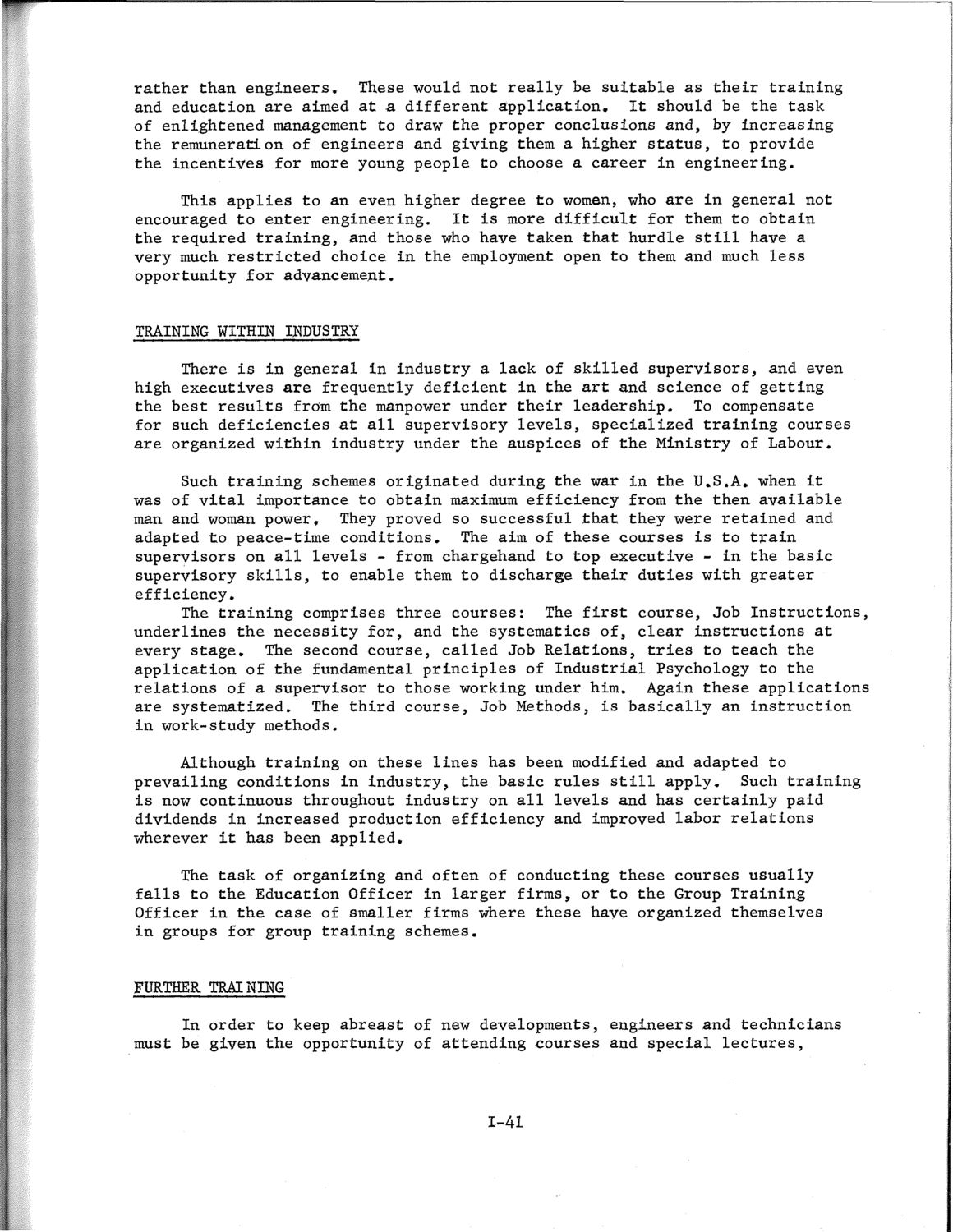| |
| |
Caption: SWE - Proceedings of the First International Conference of Women Engineers and Scientists
This is a reduced-resolution page image for fast online browsing.

EXTRACTED TEXT FROM PAGE:
rather than engineers. These would not really be suitable as their training and education are aimed at a different application. It should be the task of enlightened management to draw the proper conclusions and, by increasing the remuneration of engineers and giving them a higher status, to provide the incentives for more young people to choose a career in engineering. This applies to an even higher degree to women, who are in general not encouraged to enter engineering. It is more difficult for them to obtain the required training, and those who have taken that hurdle still have a very much restricted choice in the employment open to them and much less opportunity for advancement. TRAINING WITHIN INDUSTRY There is in general in Industry a lack of skilled supervisors, and even high executives are frequently deficient in the art and science of getting the best results from the manpower under their leadership. To compensate for such deficiencies at all supervisory levels, specialized training courses are organized within industry under the auspices of the Ministry of Labour. Such training schemes originated during the war In the U.S.A. when it was of vital importance to obtain maximum efficiency from the then available man and woman power. They proved so successful that they were retained and adapted to peace-time conditions. The aim of these courses is to train supervisors on all levels - from chargehand to top executive - In the basic supervisory skills, to enable them to discharge their duties with greater efficiency. The training comprises three courses: The first course, Job Instructions, underlines the necessity for, and the systematics of, clear instructions at every stage. The second course, called Job Relations, tries to teach the application of the fundamental principles of Industrial Psychology to the relations of a supervisor to those working under him. Again these applications are systematized. The third course, Job Methods, is basically an instruction in work-study methods. Although training on these lines has been modified and adapted to prevailing conditions in industry, the basic rules still apply. Such training is now continuous throughout industry on all levels and has certainly paid dividends in increased production efficiency and improved labor relations wherever it has been applied. The task of organizing and often of conducting these courses usually falls to the Education Officer in larger firms, or to the Group Training Officer in the case of smaller firms where these have organized themselves in groups for group training schemes. FURTHER TRAINING In order to keep abreast of new developments, engineers and technicians must be given the opportunity of attending courses and special lectures, 1-41
| |